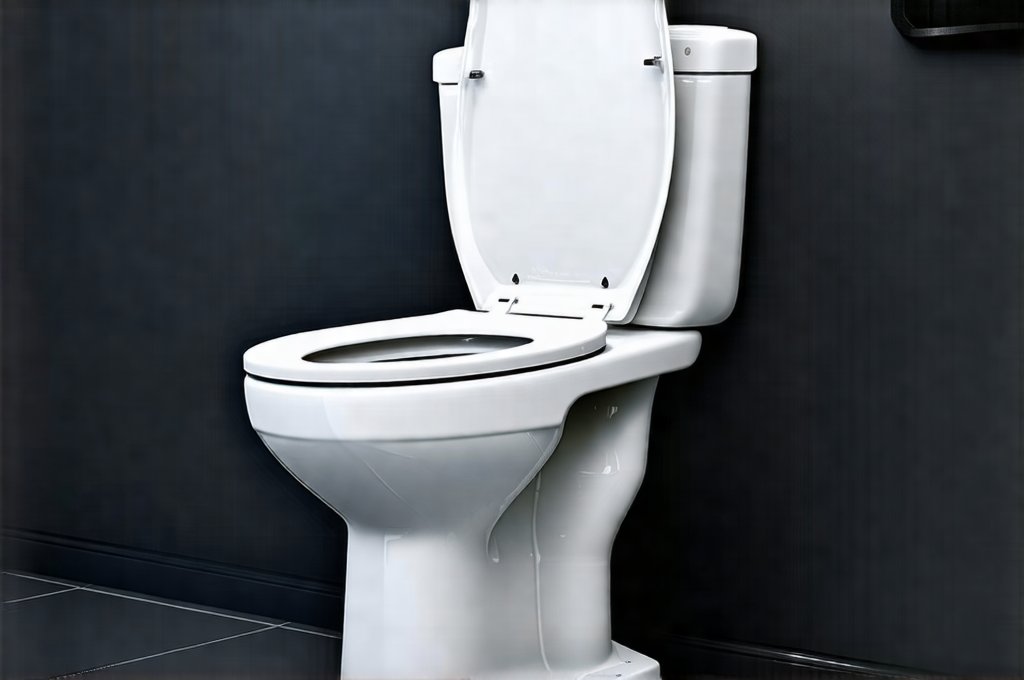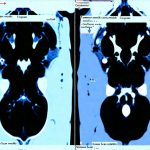Constipation is an incredibly common experience. Most people will encounter it at some point in their lives – perhaps after a change in diet, during travel, or due to stress. Typically, mild constipation resolves quickly with simple adjustments like increased fluid intake, more fiber consumption, and regular physical activity. It’s often viewed as a temporary inconvenience rather than a serious health concern, and that’s frequently accurate. However, the line between “normal” occasional constipation and something potentially more significant isn’t always clear-cut. Recognizing when mild constipation warrants further investigation can be crucial for early diagnosis and management of underlying conditions.
This article will explore the nuances of chronic or worsening constipation, focusing on situations where advanced testing might be necessary. It’s important to remember that this information is not a substitute for professional medical advice; it’s intended to empower you with knowledge so you can have informed discussions with your healthcare provider. We will discuss red flag symptoms, what types of tests may be used, and the rationale behind seeking more detailed evaluation when constipation deviates from the typical experience. Understanding these factors can help ensure that treatable conditions are identified promptly, improving overall health and well-being.
Recognizing When Constipation Isn’t Just Constipation
Mild constipation is usually characterized by infrequent bowel movements (less than three per week), hard stools, or straining during defecation – symptoms that typically resolve within a few days with lifestyle adjustments. However, when these symptoms persist despite self-care measures, or are accompanied by other concerning signs, it’s time to consider exploring the underlying cause with your doctor. Chronic constipation is generally defined as experiencing difficulty passing stools for at least three months, and this is often where more advanced evaluation becomes important. Don’t dismiss persistent changes in bowel habits as “just getting older” or a normal part of life; these could be indicators of something requiring attention.
Several red flag symptoms should prompt medical attention:
– Rectal bleeding or blood in the stool (even small amounts)
– Unexplained weight loss
– Severe abdominal pain or cramping that doesn’t subside with bowel movements
– A sudden and significant change in bowel habits
– Feeling of incomplete evacuation, even after passing stool.
– Anemia (often detected during routine bloodwork)
These symptoms aren’t necessarily indicative of a serious condition, but they should trigger further investigation to rule out potential causes ranging from inflammatory bowel disease to colorectal cancer. It’s crucial not to self-diagnose or delay seeking medical advice if you experience any of these warning signs. Ignoring them could lead to delayed treatment and potentially more complex health issues down the line.
The importance of context also cannot be overstated. A previously healthy individual experiencing a sudden onset of chronic constipation warrants quicker investigation than someone with a long history of mild constipation who experiences a slight worsening of symptoms. Your doctor will consider your medical history, lifestyle factors, and current symptoms to determine the appropriate course of action. If you are concerned about intermittent issues, exploring approaches to testing can be a good start.
Advanced Testing Options for Chronic Constipation
When a healthcare provider suspects that constipation is more than just a simple dietary issue, they may recommend various diagnostic tests. These tests aim to identify underlying causes such as structural abnormalities, functional disorders, or systemic diseases affecting bowel function. The choice of testing will depend on the individual’s symptoms and medical history. It’s essential to understand that these tests aren’t about finding blame; they are about gathering information to create a personalized treatment plan.
Initial investigations often include blood tests to check for anemia, inflammation markers, thyroid function, and electrolyte imbalances. These can help identify systemic conditions contributing to constipation or suggest the need for more specialized testing. Colonoscopy is frequently recommended, particularly in individuals over 50 or those with a family history of colorectal cancer, as it allows direct visualization of the entire colon to screen for polyps, tumors, or other abnormalities. A flexible sigmoidoscopy can be used if only the lower portion of the colon needs examination. Why digestive tests matter even with mild symptoms should be considered.
Beyond these initial tests, more specialized investigations might include:
– Anorectal manometry: assesses the function of anal sphincter muscles and their ability to relax during defecation.
– Defecography: utilizes X-ray imaging to evaluate rectal emptying and identify structural abnormalities that may impede bowel movements.
– Colon transit studies: measure how quickly waste moves through different parts of the colon, helping to pinpoint areas of slowed motility (slow movement).
These advanced tests provide a more detailed understanding of bowel function and can help differentiate between various causes of chronic constipation, leading to targeted treatment strategies. If basic testing is normal, options available should be discussed with your doctor.
Understanding Anorectal Manometry
Anorectal manometry is a diagnostic procedure used to assess the function of the anal sphincter muscles and rectum. It helps doctors understand how well these structures are working together during defecation. The process involves inserting a small catheter with sensors into the rectum and measuring the pressure exerted by the anal sphincters when you contract or relax them. This provides valuable information about rectal sensation, muscle strength, and coordination.
The procedure itself is generally considered uncomfortable but not painful; patients may experience a feeling of fullness or pressure during the test. It’s important to empty your bowels completely before undergoing anorectal manometry for accurate results. The data collected helps identify problems such as:
– Weak anal sphincter muscles
– Inability of the internal anal sphincter to relax, leading to difficulty passing stool
– Impaired rectal sensation (not feeling the urge to defecate)
Identifying these issues allows healthcare professionals to tailor treatment plans to address specific functional deficits and improve bowel control. The test is particularly useful in evaluating patients with fecal incontinence or constipation that doesn’t respond to conventional treatments. It’s important to explore testing approaches if symptoms don’t match results.
Decoding Defecography Results
Defecography, also known as a barium enema with dynamic imaging, is an X-ray examination used to evaluate the rectum during simulated defecation. It helps identify structural abnormalities and functional problems that may be contributing to constipation or fecal incontinence. During the procedure, a soft barium paste is inserted into the rectum while you attempt to mimic bowel movements. Real-time X-ray images are then taken to assess how the rectum empties and whether there are any issues with its shape, support, or evacuation.
Key findings that may be identified during defecography include:
– Rectocele: a bulge of the rectum into the vagina (in women)
– Enterocele: a bulge of the small intestine into the rectum.
– Weakness of pelvic floor muscles leading to impaired rectal support.
– Narrowing or strictures in the rectum that impede stool passage.
Defecography can help doctors determine whether surgical intervention might be necessary to correct structural abnormalities and improve bowel function. It’s important to note that this test involves radiation exposure, so it’s typically reserved for patients where other diagnostic methods haven’t yielded a clear diagnosis.
The Role of Colon Transit Studies
Colon transit studies evaluate how long it takes food waste to travel through the colon. This helps identify areas of slowed motility (slow movement) which can contribute to constipation. The test involves swallowing capsules containing small, radio-opaque markers that are visible on X-ray. Subsequent X-rays taken at specific intervals over several days track the progress of these markers as they move through the digestive system.
The results of a colon transit study can reveal:
– Global slowing: when the entire colon is moving sluggishly
– Regional slowing: where certain segments of the colon are slower than others.
– Accelerated transit (less common in constipation, but may indicate other issues).
This information helps doctors differentiate between various types of chronic constipation and guide treatment decisions. For example, if regional slowing is identified, targeted therapies like increased fiber intake or specific medications might be recommended to improve motility in the affected area. It’s a relatively non-invasive test that can provide valuable insights into bowel function when other investigations are inconclusive. If probiotics aren’t helping, next-level testing may be necessary.
Ultimately, recognizing when mild constipation needs advanced testing isn’t about inducing anxiety; it’s about being proactive with your health and seeking appropriate care when necessary. Open communication with your healthcare provider, coupled with an understanding of potential warning signs and available diagnostic tools, is the best way to ensure timely diagnosis and effective management of any underlying issues affecting bowel function. Testing for inflammation should be considered if gut pain is present.


















